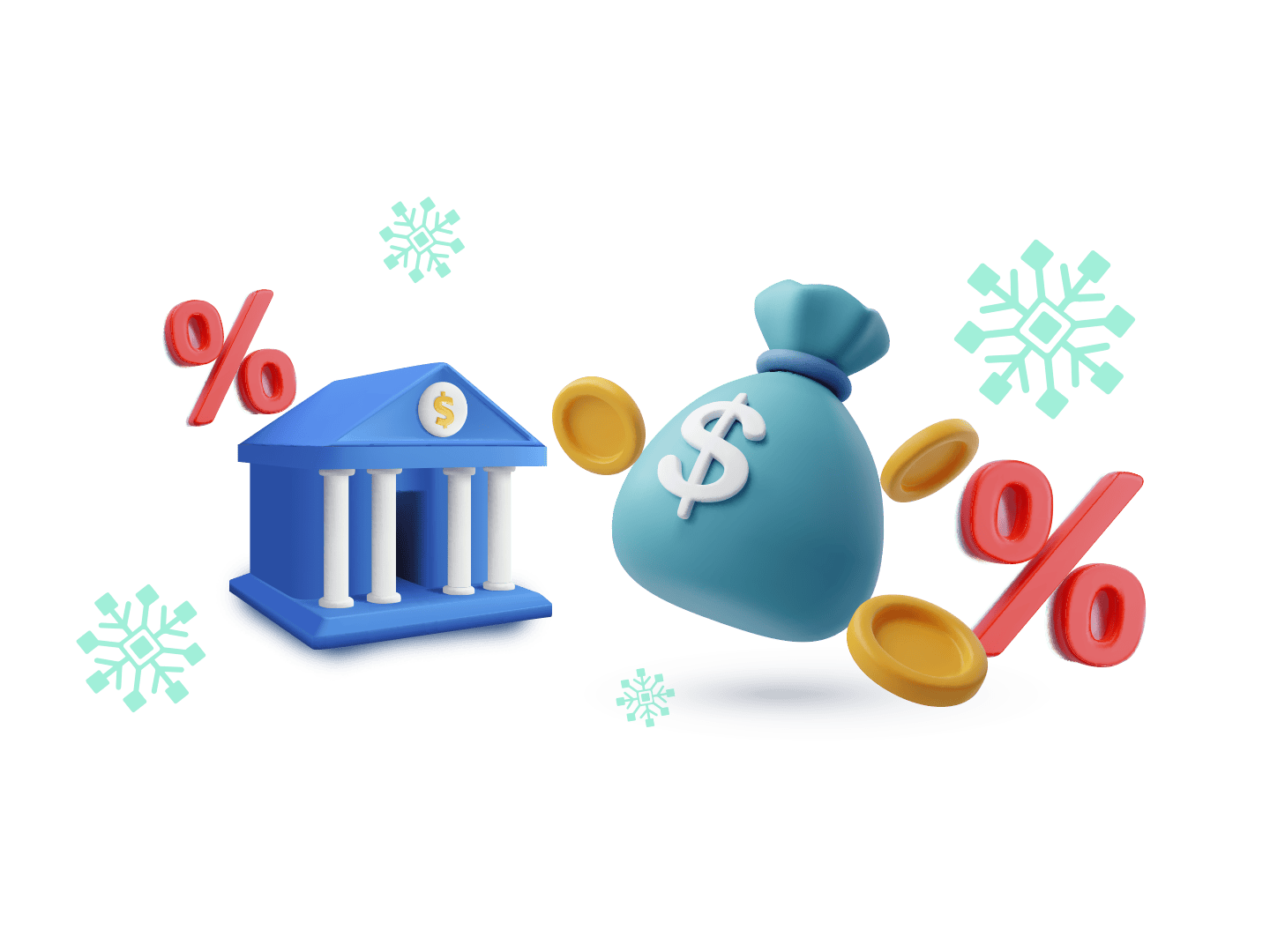Personal Loan Approval Tips: 6 Essential Strategies to Enhance Your Chances
Updated: 27 Oct 2025
Securing approval for a personal loan doesn't come with a one-size-fits-all solution. This is because each lender evaluates applicants based on unique criteria, which may include credit scores, income levels, and even aspects like employment history. While lenders aim to fund reliable borrowers, understanding and navigating their requirements is key.
This guide delves into six practical tips which may substantially improve your likelihood of obtaining a personal loan, offering you alternatives and strategies to meet lender expectations effectively.
>> MORE: Personal loan rates: Compare top lenders in Singapore
Enhance your credit profile
A robust credit score significantly amplifies your prospects for personal loan approval. Elevating this score involves meticulous attention to your credit history and proactive management of your finances.
>> MORE: Free credit score check in Singapore
Ensure your credit report is flawless. Begin by securing a copy of your credit report from the Credit Bureau Singapore (CBS), available online for a nominal fee of S$8. Alternatively, you can take advantage of offers like HSBC's Complimentary Credit Report service if eligible, or you can also obtain a free report within 30 days of a credit application decision by visiting the CBS office with the appropriate documents.
Regularly review your credit details for inaccuracies – such as misreported account statuses or erroneous credit limits – and dispute any discrepancies immediately. Maintaining accuracy in your credit report is crucial for reflecting a true financial image.
Reduce debt and manage credit utilisation. Work towards paying down existing debts, which will lower your credit utilisation ratio – a key factor in credit scoring. This metric reflects the proportion of your accessible credit that is currently utilised; keeping it under control is vital for a healthy credit score.
If feasible, request an increase in your credit limits without triggering a hard credit inquiry, as higher limits can further improve your utilisation ratio, provided you do not increase your spending.
Maintain prompt payment records. Ensuring timely payments on all financial obligations is also essential. Regularly exceeding the minimum payment on your credit obligations can bolster your credit score, showcasing sound financial management and reliability.
Leverage secured credit solutions. Consider using secured credit cards as a means to rebuild or enhance your credit profile. These cards necessitate a cash deposit acting as security, making them easier to obtain if your credit history is sparse or tarnished.
Understand the local credit scoring. Familiarise yourself with how the CBS credit scoring system works, which ranges from 1000 to 2000 points. Unlike other systems that may focus heavily on payment history and debt levels, the CBS model also considers the length of credit history, types of credit used, and recent credit activities.
Rebalance your financials for loan success
To improve your eligibility for a personal loan, focus on optimising your debt-to-income (DTI) ratio. This key metric assesses your financial health by comparing your total monthly debt to your income.
Aim for a DTI below 36% to increase your loan approval chances, although some lenders may accept higher ratios. Enhance this ratio by boosting your income—consider side gigs or part-time jobs—and by paying down existing debts, especially smaller, high-interest liabilities.
Crafting a strict budget can also help manage expenses and prevent new debt from accumulating. Remember, each lender has different DTI requirements; understanding these can tailor your approach to meet their criteria effectively.
>> MORE: Low-income loans: What they are and how to get one in Singapore
Choose a loan amount wisely
When applying for a personal loan, it's crucial to request a sum that not only fulfils your urgent financial requirements while remaining manageable within your budget constraints.
An essential tool at your disposal is the personal loan calculator, which helps estimate the monthly repayments determined by loan size, duration, and Effective Interest Rate (EIR). EIR, different from the flat interest rate, provides a more comprehensive view of the loan's cost by including the effects of compounding and other fees.
By opting for a loan amount that's aligned with your repayment capacity, you enhance your likelihood of loan approval. Lenders are also more favourable towards borrowers who demonstrate prudence in borrowing, reflecting a lower risk profile.
Moreover, a well-judged loan amount ensures that your remaining financial obligations, including current loans or rent, are not jeopardised, maintaining a healthy financial balance.
Boost loan eligibility through guarantors
Involving a co-signer or co-borrower can significantly bolster your eligibility for a personal loan, particularly if your credit history is less than stellar.
A co-signer commits to fulfilling the loan obligations should you fail to make repayments, acting as a form of insurance for the lender. This is particularly advantageous if the co-signer has a robust credit profile and stable income, as it reduces the perceived risk and can lead to more favourable loan terms.
However, the role of a guarantor comes with substantial responsibilities and potential risks. For instance, if the loan is not repaid, not only can the co-signer's credit score be adversely affected, but they may also face legal action if the debt remains unsettled.
Such consequences might include garnishment of wages or even a forced bankruptcy, depending on the severity of the default.
Therefore, before agreeing to become a co-signer, or asking someone to become one, it’s crucial that both parties fully understand the implications. The commitment means that the co-signer must be ready and able to take on the financial burden of the loan if necessary.
>> MORE: What it means to be a loan guarantor
Leverage collateral for secured loans
Secured loans require you to pledge assets such as vehicles or savings accounts as collateral, which serves as a safety net for lenders. Opting for this type of loan can significantly enhance your chances of approval and may result in lower interest rates compared to unsecured loans. This is because the risk to the lender diminishes when there's a tangible asset backing the loan. If the loan is not repaid, the lender has the right to seize the collateral to cover the outstanding debt, thus reducing their potential loss.
While providing collateral can make loans more accessible and affordable, it's crucial to understand the risks involved. There's a real possibility of losing your asset if you default on the loan. Therefore, it's essential to assess your financial stability "and confirm your ability to fulfil the repayment terms to avoid jeopardising your property.
>> MORE: Four types of personal loans
Choose the right lender for your needs
When seeking a personal loan, choosing the right lender is crucial. It is thus important to thoroughly research and compare various financial institutions, including traditional banks, credit co-ops, and digital lenders.
Key aspects to consider are the interest rates offered, loan terms, associated fees, and the reputation of the lender through customer reviews.
Different lenders have varied eligibility criteria and loan products that might suit different borrower profiles. For instance, some might offer specialised loans for individuals with excellent credit that come with lower interest rates and more favourable terms.
Conversely, there are also products designed for those with less than perfect credit, including options for individuals who might be unemployed or foreigners residing in Singapore.
In Singapore, here are some tailored options based on different borrower profiles:
To find the most suitable lender, assess who provides the most favourable conditions for your individual financial needs. If possible, pre-qualify with multiple lenders without impacting your credit score to compare the potential rates and terms. This process helps you gauge which lender could provide the most cost-effective loan while fitting comfortably into your financial plan.
Discover your personalised personal loan options with SingSaver
Explore potential personal loan offers in Singapore without impacting your credit score. Simply answer a few quick questions and gain access to personalised rate estimates from a range of trusted lenders. SingSaver's comprehensive comparison tool simplifies the process, allowing you to easily navigate diverse loan options and secure the best rates and terms for your needs.
Explore alternatives to personal loans
When considering how to finance your needs, personal loans are just one option among many. Exploring alternatives can offer advantages depending on your financial situation and needs.
0% interest credit cards: Some credit cards offer instalment payment plans at 0% interest, which can be a practical alternative to loans for managing cash flow without additional cost.
Buy Now, Pay Later schemes (BNPL): Popular for their simplicity and the lack of a credit check, BNPL plans split payments into smaller, manageable parts over a few weeks. While convenient, their ease of use could potentially lead to impulse purchases and overspending.
Cash advance apps: These apps provide a quick way to borrow small amounts against your next paycheck. While generally easy to access, some might charge for faster funding or a monthly subscription, adding to the cost. For smaller, urgent cash needs, apps like DBS's digibank offer instant cash withdrawals. This method is convenient, allowing you to transfer funds immediately through FAST transactions when you’re in a pinch.
Home equity lines of credit (HELOCs): For homeowners, home equity loans offer a way to borrow against the equity built up in your home at rates generally lower than unsecured loans. However, the risk lies in the possibility of losing your home if repayments are not managed properly.
Frequently asked questions about personal loan approvals
Factors such as your credit score, your income, and your existing debts are critical in the loan approval process. Lenders also may consider non-traditional data like your employment history to assess your reliability as a borrower.
Yes, obtaining a personal loan with less-than-ideal credit is achievable. You might look to specialised online lenders that cater to borrowers with bad credit scores.
If a lender declines your personal loan application, they are required to explain the reasons. Use this feedback to improve your financial standing for future applications. If immediate funds are necessary, alternatives like cash advance apps or buy now, pay later services might be suitable temporary solutions.
Explore personalised loan options with SingSaver
Curious about your loan eligibility? Discover potential personal loan rates from various lenders without impacting your credit score. Plus, leverage SingSaver's free credit score check to understand your financial standing and make informed decisions.
Explore fast cash loan options with SingSaver
Discover personalised rate estimates from multiple lenders, without impacting your credit score. Answer a few questions to see if you pre-qualify. Compare Singapore's best fast cash loans and find the ideal solution for your financial needs.


